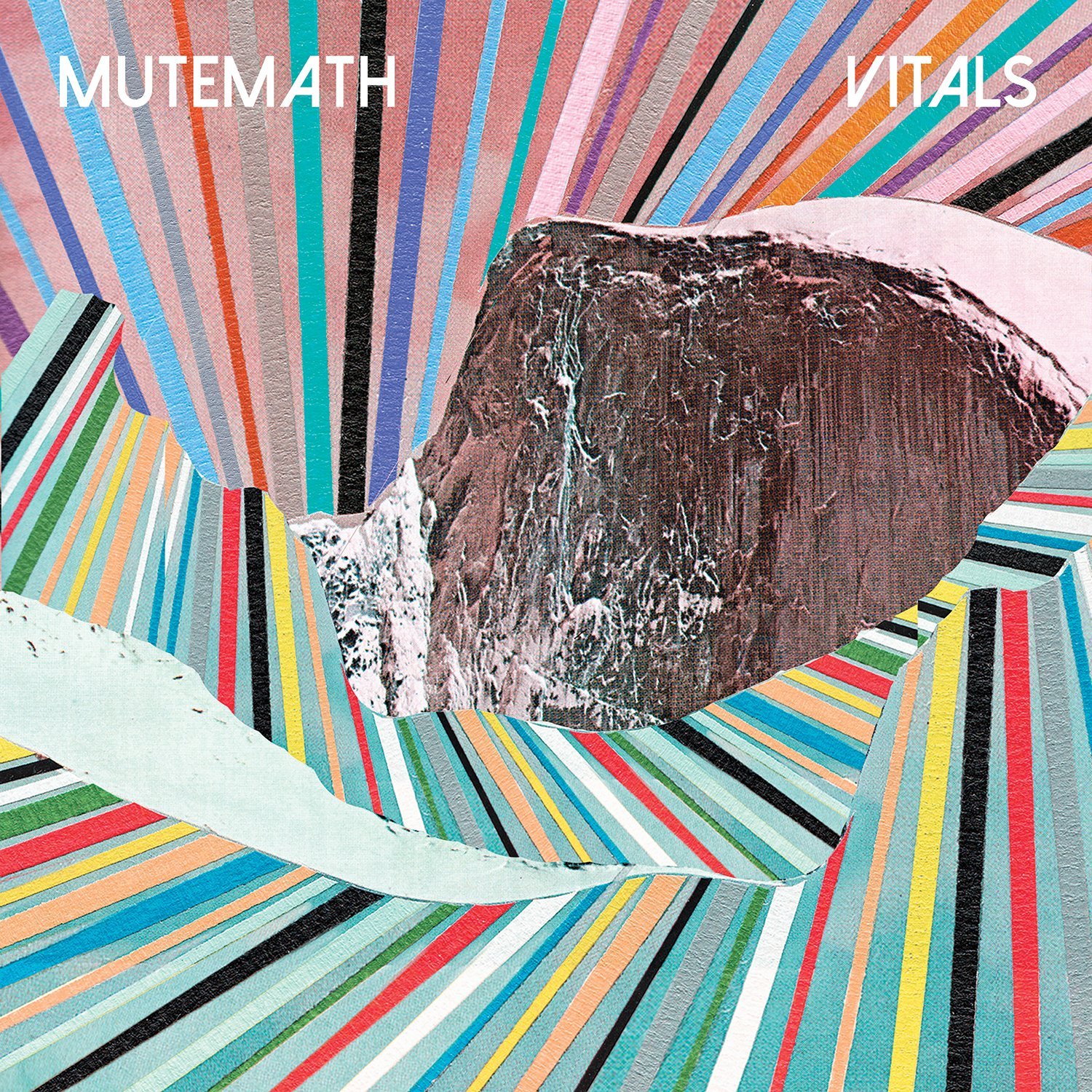
New Orleans-based alternative rock group Mutemath has made a name for
themselves thanks to their energetic live performances (the lead singer crowd surfs on a mattress wrapped in LEDs) and considerable musicianship. In terms of the progression of their sound, they’ve modified it with each new record. Their self-titled debut album in 2006 was standard alternative rock with some electro influences, and their 2009 follow-up, Armistice, showed the group taking a darker, more thematically and musically complex direction. With their last release, 2011’s Odd Soul, the group found themselves incorporating the popular blues-rock sound (a la Black Keys) into their music while still managing to deliver a fresh take on it. With the group’s newest release, Vitals, the group continues this method of tapping into the popular contemporary style and making it their own. Specifically, they look to the electronic/dubstep genres of popular music and tackle them with vintage synthesizers and an emphasis on the groove. Although the new direction might take a little getting used to for longtime fans, just as Odd Soul did, the album still distinctly feels like a Mutemath record, and it only improves upon repeated listening.
Right off the bat, the first thing you’ll notice is a shift in mixing. The drummer in particular, Darren King, and his animalistic yet precise style has traditionally been at the forefront of Mutemath. If you ever get a chance to see them live or watch a video of a performance, you’ll see that, literally, he’s in the front of the band where the guitarist normally is- not the back. However, on this album, Darren and his drumming take a backseat and a rather subdued approach. This move lets an important, but traditionally secondary, component of the group’s music come to the surface: Paul Meany’s vocals. Paul, who has one of the truly unique voices in the alternative rock scene, finally lets his soulful and ever-so-slightly-raspy vocals steer the ship with his work on this album. Through tracks like
“Joy Rides,” “Stratosphere,” “Composed/Used To,” and “Remain,” Paul’s expressive vocals absolutely soar and take the group to new heights as a result. The musicianship of the group, specifically that of Darren’s drumming and Paul’s keyboard playing, has always been its primary attractor. So, perhaps the album’s greatest feat is that it allows the real secret weapon of this group to step into the spotlight for the first time: the multi-instrumentalist, Roy Mitchell-Cardenas. Having been the bassist for the group until its lead guitarist left after their second album, Mitchell-Cardenas has continued to play bass, but he has also added lead guitar to his musical duties. If not for his tasteful bass playing, I would say that it’s a crime that he’s kept his guitar-playing abilities in the dark for as long as he did. What he does on this album takes good speakers, high volume, and multiple listens to adequately pick up everything that’s going on. Taking inspiration from funk and disco, Mitchell-Cardenas embraces percussive, syncopated playing on dampened strings instead of traditional alternative rock chords and riffs that are associated with the band’s earlier days. The subtlety of his playing continues to provide rewards for me as a listener with each new play through, and his work here is definitely one of the primary highlights of the album. Specific tracks to look for that display his playing are “Joy Rides,” “Light Up,” “Monument,” “Vitals,” “Best of Intentions,” and “Safe If We Don’t Look Down.”
In a 12-song album that only has one weak track when pressed to find one, the instrumental “Bulletproof,” the album is full of great musical moments. However, the one particular song that struck me upon first listen and has stayed with me ever since has to be the album’s penultimate track, “Safe If We Don’t Look Down.” This song, simply put, is Mutemath at its absolute best. Roy’s aforementioned impeccable guitar playing is on full display here, and Paul’s vocal work is the most pure and caressing it’s ever been. Pair those with a beautifully simple synth line, nostalgic lyrics, and a second-half jam on vintage synthesizers, and the result is a perpetually goosebump-inducing song that ties the album together.
Overall, despite the musical shift, this album feels like an essential Mutemath record, which makes the title of the album, Vitals, apt in that sense. Full of musical highs, killer grooves, catchy hooks, and top-notch musicianship, Vitals proves that after a four-year absence, Mutemath has as much of a pulse as ever.
By Harrison Morof

